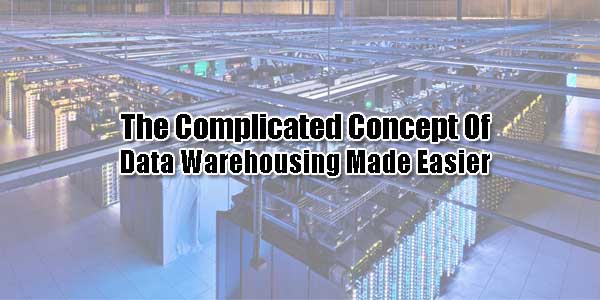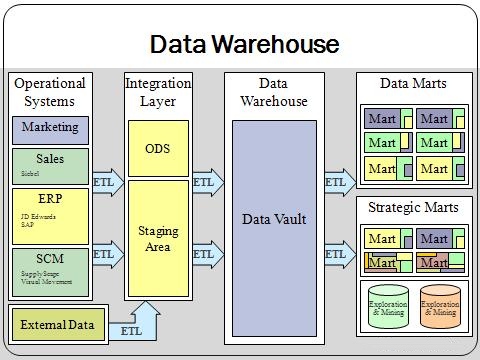
There is one topic that has been so hot over the past few years- data. Capturing, managing and using data in a business is so much more difficult than most people tend to imagine. There are many things that you need to do in order to make sure that you get the best from your data. One of these things is creating an effective storage facility. This is where the issue of creating a data warehouse comes in. Warehousing business information is harder than storing a million bags of maize. This is mainly because of the abstract nature of the activity.
Table of Contents
Learn More About The Activity:
Creating a data warehouse is simply not a matter of developing a room and storing your data. There is technology that must be implemented to make sure that the data is captured. Once this data has been captured, then it must be integrated with data from other sources and stored. It should also be retrievable whenever one needs to use the data. The dynamics of warehousing data are just so complicated and the internet does not really make things simpler.
There are several concepts in data warehousing that are rather complicated. First of all, the activity of warehousing data in itself is very complex. A data warehouse is basically a central point where all the business data is stored. It should be accessible to all those who need to use the data and are authorized to do so. It does not matter whether the businesses are strewn all over the globe, a central data warehouse can be created for this.
What Is Data Warehouse Used For?
A data warehouse is designed for analysis purposes and not for processing transactions. It is a relational database whose main component is historical data that has been derived from transaction data. It can also include data from various sources. It enables businesses to separate the analysis workload from the transaction workload. This therefore makes it possible for consolidation of data from several sources within the same organization.
In addition to the relational database, a data warehouse environment will always include solutions for extraction, transportation, transformation and loading. There will be other applications that make the process of gathering the data and delivering it to the users simpler. This is where data management comes in. A data warehouse, being central, makes it possible to access data from several sources and also to manage it.
Characteristics Of A Good Data Warehouse:
A good data warehouse will always have the following characteristics:
1.) Subject Orientation:
A data warehouse can be focused on a particular subject of the business either sales, marketing, human resource or whatever else the business wants to focus on.
2.) Integration:
Data warehouses must put data from several disparate sources into a consistent format.
3.) Non-Volatile:
Data should not change once it has been entered.
4.) Time Variant:
A data warehouse should be able to show the trends within a business easily while at the same time showing changes over a period of time.


 About the Author:Charlie Brown is data solutions analyst. To find out more about
About the Author:Charlie Brown is data solutions analyst. To find out more about 












Be the first to write a comment.